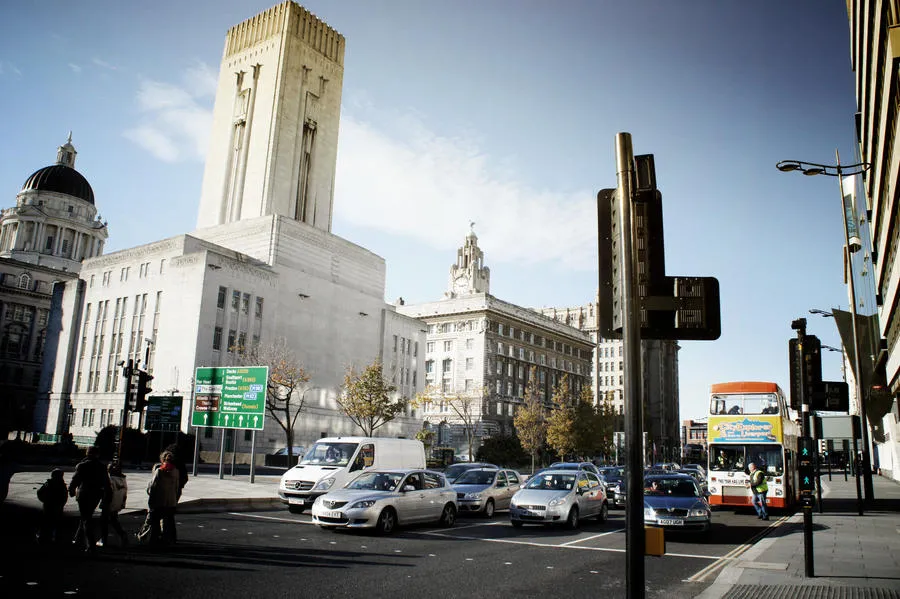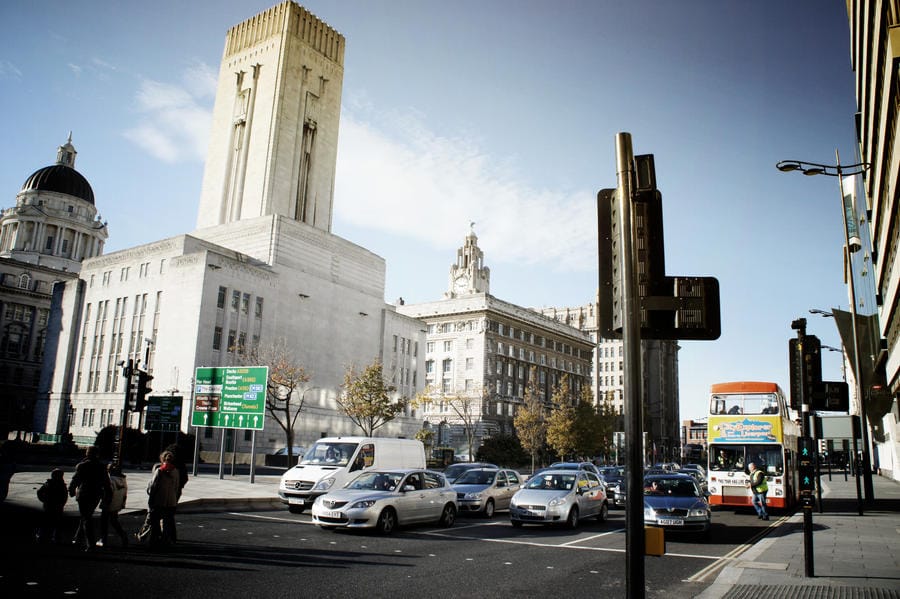Free city centre parking is ending. But the controversy rages on

Plus: Three shock defections by Wirral Conservatives
Dear readers — here at Post HQ the deckchairs are out, the sun cream is on and the straw hats are being donned as we soak up the tropical climes. We hope you had chance to do the same over the gloriously sunny weekend.
Catch up and coming up:
Last week, dozens of you got chatting in the comments section of our first edition of Answers in The Post. The question: Why are Liverpool’s streets so grimy? Here are some of our favourite takes from readers:
- “We Liverpudlians generally are strongly inclined towards tribalism, which often causes the onset of self-delusion and denial. And simultaneously we pride ourselves on our propensity for outspokenness and realism. Is the City’s egregious litter problem attributable, at least in part, to its general antipathy towards authority in its various forms?” — Gerry Latham
- “Maybe it’s time the Council launched a proper publicity drive — one backed by the city’s footballers, actors and musicians. If we got some big names involved, it might just make people think twice before dropping that crisp packet” — Orna
- “A catchy campaign – something that would engage school children, students and other residents seems like a great starting point. Is this something that the tourist levy could be used for?” — Jane A
If you’re yet to get involved, click here to let us know your thoughts.
Coming up this week, we have another edition of Answers in The Post: Why is Birkenhead central out of work? This time Laurence is tasked with finding out exactly why over 50% of those in the area are receiving unemployment benefits.
We also have a fantastic weekend read from Liverpool’s finest, Dave Lloyd, looking to a city in Germany we could learn a lot from.
The big story: Free city centre parking is ending. But the controversy continues
Top line: Liam Robinson, the leader of Liverpool City Council, has defended the decision to end free parking in the city centre, calling it “necessary”. But not everyone is convinced.
Context: From next month, drivers in Liverpool city centre will have to pay to park from 7am until 11pm, instead of 8am to 6pm as they do currently. This comes two years after the proposals were first made following a review in 2018.
When the public were consulted on the issue, 89% of respondents to a survey said they were against the amendment. Nevertheless, it was confirmed last week that the council would go ahead with the expansion of chargeable hours. The cost of parking will also increase: from £1.20 to £2 for half an hour, and from £2.40 to £4 for an hour.
‘Already skint’: Speaking to the BBC, residents raised concerns about the night-time economy. One said that having to pay until 11pm would put her off attending concerts at the Philharmonic Hall or plays at the Everyman.
Some have concerns about performers themselves, too. PJ Smith AKA Roy, a poet and DJ, pointed out that artists regularly bring equipment to gigs. As a result of the change, loading and unloading will be made more difficult and expensive for musicians. “Most of them are already skint. This will affect them,” PJ said. “Free after 6pm has worked and does work for everyone.”

Carl Cashman, leader of the Liberal Democrats in Liverpool, accused the council of going against residents’ wishes, adding: “We’ve got a council, and councillors, at the moment who just don’t listen to local people.” Cashman also noted the recent Bramley-Moore Dock row, where a proposed Experimental Traffic Regulation Order imposed within a half-hour walking radius around Everton’s new ground was put on hold after backlash from local businesses. “You’d think they would have learned their lessons,” Cashman added.
But council leader Liam Robinson has since defended the policy, telling the Liverpool Echo that while the changes would not be “universally popular” the increase was “proportionate” for a city the size of Liverpool.
Others have also seen potential value in the changes. Gary Kilroy, a transport union representative, wrote on X that removing free parking after 6pm would “go some way to alleviating the current chaotic free for all” when it comes to parking and congestion in the city centre. (He also wrote that the changes “will have zero effect on the night-time economy” — though with the concerns raised by performers about higher costs making it prohibitively expensive to set up for gigs, it’s hard to see how that will be the case.)
At the same time, Kilroy stressed the need for better public transport in and out of the centre and called for Merseyrail to run a full timetable on Friday and Saturday nights. Speaking to the Echo, Robinson likewise added that the council were working with metro mayor Steve Rotheram “to freeze bus fares so we can provide a better public transport offer as well.”
Other supporters of the policy say that discouraging people from driving will free up spaces, especially for the elderly or infirmed. Blue badge holders will continue to be exempt from the charges as they are currently. The environmental consequence of more people using public transport or cycling would also be positive. And raising charges can, of course, result in more money for local councils.
Bottom line: As we wrote earlier this year, cities in the UK do worse for public transport than any other wealthy western nation – the only one with fewer than 20% of its major cities served by trams, metro, or urban light rail. (For comparison, around 80% of France’s large urban centres have at least one of these amenities, while in Germany it’s closer to 90%.)
Liverpool is no exception in this regard, and it’s no surprise that many rely on cars to access the city centre and oppose higher parking costs for longer hours. If buses ran later or trains were more reliable, perhaps these increases would be more justifiable. But that’s currently not the case. Even the much-vaunted reintroduction of the Liverpool-Wirral night bus only runs to Birkenhead, leaving many visitors from the Peninsula side of the city region still reliant on taxis or cars to get home from nights out. As for the trains, Merseyrail also does not run a full service at night, and has been plagued with technical problems and breakdowns.
We’d love to know what you think. Are you among the roughly 90% of people the council are defying with this policy? Or are you with council leader Robinson in seeing this as a necessary and positive change? Let us know in the comments below.
Photo of the week
A starry evening on Queen Avenue, the only remaining Victorian pedestrian arcade in the city. Photo by u/AnfieldAnchor on Reddit.
Have a photo to share? Email it to editor@livpost.co.uk.
Your Post briefing
Trouble over the water? Three Wirral Conservatives have now broken away from the party. Heswall’s three councillors – Kathy Hodson, Andrew Hodson and Graham Davies – said they “believe deeply in integrity, accountability, and respect” and as a result would be leaving the Conservative party with immediate effect. The trio have confirmed they will now sit as independent Conservatives instead. As a result, the Conservative group in Wirral will hold 14 seats in the council, meaning the party will now tie with the Wirral Greens going forward. Know any more about this story? Email abi@livpost.co.uk.
The Southport killer is being investigated by police after a prison officer had boiling water thrown on them. Axel Rudakubana was found guilty of murdering three girls in Southport and harming 10 others in January this year, and was sentenced to a minimum of 52 years in prison. On Thursday, the Prison Service alleged he had thrown boiling water on a member of staff, who was admitted to hospital and discharged the same day. While it is not clear exactly how Rudakubana got hold of boiling water, Tom Wheatley, president of the Prison Governors' Association, told BBC Radio 4 it was a "lower risk" to allow prisoners to boil water in their rooms because the alternative was to have officers bring hot water to their cells. In response to the incident, the Prison Service said violence in prison "will not be tolerated and we will always push for the strongest possible punishment for attacks on our hardworking staff".
And the number of homeless children living in temporary accommodation in Merseyside has risen, according to new statistics. In total, 1,548 children were without a fixed address and living in hotels and B&Bs between October and December 2024. It’s the highest figure on record since data became available six years ago — an increase of nearly 100 from the previous quarter, and higher than the 1,055 children in the same period in 2023. In response, Dan Wilson Craw, Deputy Chief Executive of Generation Rent, told the Echo that “more and more children are spending their formative years trapped living in temporary accommodation” and are often living in “overcrowded and unsafe conditions and at huge cost to local authorities”.
Post Picks
🎂The Wirral Bake Off returns this Friday, hosted at Claremont Farm. Sample delicious cakes and cast your vote for the winner from 6pm — details here.
🌲As part of Writing on the Wall Festival, enjoy a poetic exploration of Oglet Shore, a green edgeland that is being threatened by local industry. The event is taking place at the Palmhouse on Thursday — tickets here.
📻Or, head to Boxpark on Thursday for a special evening with Liverpool broadcaster Billy Butler. Expect fascinating insights and behind-the-scenes tales — details here.
🍻Over the weekend, Invisible Wind Factory is hosting the Rum and Reggae Festival, with live music, street food, carnival acts and more. Tickets and more information here.
Recommended reads
📻Last year, we published a heart-breaking piece from writer Gareth Lemon, about how lesbian mothers in Merseyside were separated from their children in the 1970s. Now, that story has been turned into a radio documentary. Listen to it here.
📖And for those of you that enjoyed Laurence’s piece on Catholicism in the city, why not try this fascinating piece by the BBC on what it is like to be part of the conclave that selected the new Pope?

Comments
Latest
A postcard from Colwyn Bay
Fountains, Ffrith and turning the place over
Just what is happening with Peak Cluster’s CO₂ pipeline?
A ‘stitch up’? How Wirral council bungled Big Heritage
Free city centre parking is ending. But the controversy rages on
Plus: Three shock defections by Wirral Conservatives